Can you eat fruit on the keto diet? This post discusses which fruits you should include in your keto diet, and which fruits should be better left out.
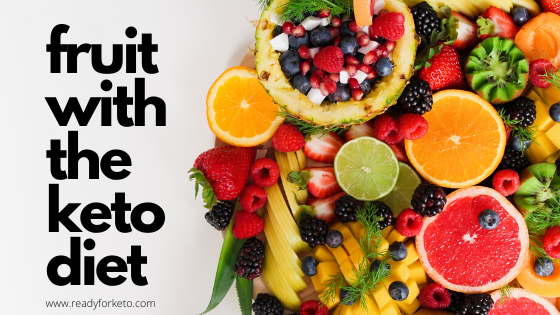
If you like to eat fruit and want to follow a ketogenic diet, you may wonder if there are certain fruits will not affect your keto goals. After all, fruit is healthy, isn’t it?
But with a high-fat, low-carbohydrate diet, eating too many net carbohydrates can increase your blood sugar and quickly throw you out of ketosis.
Fortunately, there’s a difference between high-carbohydrate and low-carbohydrate fruits – and there are some keto-friendly fruits that are not only low carb, but also contain healthy fats!
In this article, you’ll learn how to include “nature’s sweets” in your diet without affecting your insulin sensitivity or blood sugar levels.
Fruits with the Keto Diet: What You Should Know
Fruit is healthy, fruit contains fiber, fruit reduces your inflammation levels, and fruit is very nutritious – but fruit has a catch in the ketogenic diet: it contains (too much) fructose, and therefore carbohydrates.
So the question arises – can you eat fruits on the keto diet? are any even allowed? If so, which fruit is keto-friendly and how much keto-friendly fruit can one eat? You will find the answers here!
Is Fruit on the Keto Diet?
Is it possible to eat fruit during a keto diet? In a word, yes.
On a keto diet, you can eat certain fruits. But think of fruit as a “spice” or side dish rather than as a main course or a frequent snack.
For example, fruit can be a perfect addition to salads for more color and flavor, or you can make sugar-free, low-carbohydrate jams.
The bottom line is: Don’t stress yourself if you feel like spoiling your sweet tooth with fruit. Fruits offer a much better nutritional value than processed carbohydrate sources, and in moderation they do not have a major negative effect on fat burning or fat loss.
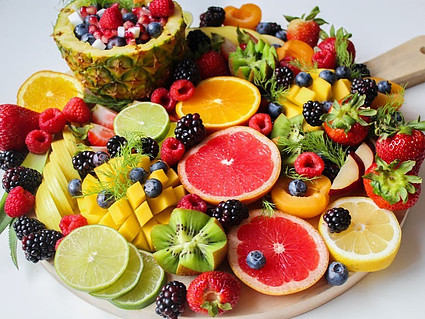
How Much Fruit Can You Eat on a Keto Diet?
To find out how many fruits and vegetables you can eat without being kicked out of ketosis, calculate your macro nutrients and make sure you don’t eat more than 20-30 grams of carbohydrates per day.
Familiarize yourself with the carbohydrate content of the different fruits or just stick to the keto fruits listed in this article and avoid all other fruits that contain too much sugar or carbohydrates.
This will ensure that you don’t exceed your daily carbohydrate limit and stay in ketosis.
Keto and Sugar: The Problem With Fruit
Refined sugar, which is produced from sugar beet or sugar cane under extensive processing, is not comparable to sugars found in nature. If you learn anything from this article, then make it that statement.
Naturally occurring sugar is always combined with fibers and polyphenols. This combination is called the “food matrix”, which greatly reduces the body’s insulin response.
Is the Sugar Content of Fruit Really That High?
To understand whether fruit really contains that much sugar, you need to know what sugar is.
There are three main types of sugar – sucrose, glucose and fructose – and they are all carbohydrates.
Glucose and fructose are both called simple sugars because they each have one sugar molecule.
Most fruits contain sucrose. Sucrose consists of a combination of glucose and fructose.
Carbohydrates are a fast acting, readily available form of energy. But fructose differs from other carbohydrates in one essential point: your liver must convert fructose into glucose before your body can use it as fuel.
Is Sugar Addictive?
All sugar, including natural sugar from fruit, is addictive to animals and humans.
In ancient times, sugar did not cause as many problems as it does today, as it was only available in the form of fruits growing in late summer and early autumn.
People 10,000 years ago ate neither daily nor year-round fruits or artificially processed products full of sugar.
In modern humans, sugar can trigger the opioid reward system of the brain. Some scientists believe that the consumption of sugar has parallels with drug abuse.
Sugar consumption is associated with eating disorders, obesity, and changes in neurotransmitters.
Fructose and Your Health
Fructose does not increase insulin levels as much as other sugars, but it can still cause problems. Fructose is less filling than other sugars and causes more fat storage.
Other problems associated with fructose include an increase in the following factors:
- Low density LDL – the type of cholesterol that causes health problems
- Hepatic fat storage
- Production of triglycerides
- Free radicals and oxidative stress
The consumption of fructose has also been linked to obesity, type 2 diabetes, heart disease, metabolic syndrome, insulin resistance and high blood pressure.
Because of its effects on the liver, fructose has similar side effects to ethanol (alcohol consumption) compared to other sugars.
Although fructose does not make you drunk, drinking a large amount of fruit juice – or excessive consumption of fruit – can have a similar effect on your liver as drinking a can of beer.
Fructose and Keto
If carbohydrates and sugars are not allowed in the keto diet, this applies doubly to fructose, because it can cause additional health problems.
Fructose is also anti-ketogenic because your liver has to metabolize it. Like glucose, once the body has digested fructose, it replenishes the liver’s glycogen stores. This can temporarily throw you out of ketosis.
Isn’t Fruit Important for Health?
It’s true – some fruits contain a considerable amount of vitamins and minerals, but this does not make them a necessary part of a low carb or keto diet.
Dr. Jennifer Di Noia of William Patterson University in New Jersey studied 47 plant foods and ranked the 41 best “fruits and vegetables” from highest to lowest, based on the content of 17 critical nutrients: fiber, potassium, protein, calcium, folate, vitamin B12, vitamin A, vitamin D and others.
Here is the top 10 list of “Powerhouse” fruits and vegetables:
- Watercress
- Chinese cabbage
- Chard
- Beet green
- Spinach
- Chicory
- Leaf lettuce
- Parsley
- Romaine lettuce
- Collard green
You may have noticed that there is no fruit among the top ten most nutritious plant foods.
The four most nutritious fruits in the study were peppers (#17), pumpkin (#20), tomato (#27) and lemon (#28). Only ten of the 41 most nutritious fruits and vegetables were actually fruits.
You will notice that the fruits on the list contain very little carbohydrates.
Many fruits are nutritious, but most fruits have a relatively high carbohydrate content, which makes them rather unsuitable for a ketogenic diet. If you want a daily source of vitamins and minerals, start by eating more low carb vegetables.
Also, organ meats and seafood are nutritious foods that provide many vitamins and minerals and keep you in ketosis.
What Fruits Can You Eat on the Keto Diet?
Too much fructose is bad for your health, but not all fruits have a high fructose content. Some fruits are low in sugar and have a high nutritional value, which makes them the best fruits for keto.
In moderation, the health benefits of certain fruits may outweigh the disadvantages of sugar and fructose. And all fruits are far better for occasional consumption than processed foods.

Here are the top 12 keto-friendly fruits:
#1 Lemon
Lemon slices or lemon juice are delicious in water or other drinks. The lemon is a good source of ascorbic acid (natural vitamin C), prevents kidney stones and even refreshes your breath.
Per 100 grams, lemons contain 29 calories, 2.8g of fiber, 6g of net carbohydrates and 1.1g of fructose. A typical lemon portion is 1 tablespoon (15g).
#2 Lime
Lime is another popular citrus fruit. With their high vitamin C content, limes can improve digestion, ward off infections and reduce the risk of cancer and heart disease.
Per 100 grams, limes contain 30 calories, 2.8g of fiber, 8.5g of net carbohydrates and 0.6g of fructose. A typical portion size of lime is 1 tablespoon (15g).
#3 Avocados
Avocados are a fruit, not a vegetable. They contain more potassium than bananas and they are rich in healthy fats, fiber and phytonutrients such as beta-sitosterol, lutein and zeaxanthin.
The avocado is a fruit that fits perfectly into a keto diet thanks to its high fat content and is one of the most important ketogenic foods.
Per 100 grams, avocados contain 167 calories, 15g fat, 6.8g dietary fiber, 1.8g net carbohydrates and only 0.08g fructose.
A standard avocado portion size is 1/3 of an avocado or about 50 grams. However, you can also eat a whole avocado daily during your keto diet.
#4 Olives (green or black)
Just as with avocados, most people do not consider olives to be fruit. Olives are a good source of dietary antioxidants and healthy fats.
They can improve blood circulation and lower blood pressure by increasing nitric oxide levels.
Olives are also anti-inflammatory, and their vitamin E content promotes brain health and helps keep free radicals under control.
Per 100 grams, olives contain 81 calories, 6.9g of fat, 2.5g of fiber, 3.1g of net carbohydrates and 0g of fructose. A typical olive portion is about 30g.
#5 Bell/Sweet Pepper
In Dr. Di Noia’s study of fruit and vegetables, bell peppers were the most highly rated healthy fruit, ranking 17th.
You can eat them like vegetables – raw or cooked. Sweet peppers are filling, low in calories and are excellent for keto-friendly refinement of sauces.
This fruit is rich in vitamin C and carotenoids and a great source of antioxidants. There are many health benefits, such as improved eye health and – with its antioxidant activity – it can even reduce the risk of chronic diseases such as heart disease and cancer.
Per 100 grams, bell peppers contains 20 calories, 1.7g of fiber, 2.9g of carbohydrates and 1.12g of fructose. A typical pepper portion is 150g.
#6 Tomatoes
Tomatoes are another fruit that you can enjoy like a vegetable. You can eat them raw, steamed, fried or as part of a sauce, soup or stew. Cherry or vine tomatoes are excellent for snacking.
Tomatoes are rich in lycopene (an antioxidant), which can reduce the risk of heart disease. Tomatoes are also rich in vitamin C, potassium, folic acid and vitamin K (28).
Per 100 grams, tomatoes contain 18 calories, 1.2g of fiber, 2.7g of carbohydrates and 1.37g of fructose. A typical tomato portion consists of 150g, chopped or sliced, or 10 cherry tomatoes (170g).
#7 Coconuts
They used to be rejected by fat-phobic nutritionists, but coconuts are an excellent choice for your keto meal planning.
They are considered a fruit, nut or seed, depending on who you ask – but coconuts are great for your keto diet, no matter how you classify them. To avoid fructose, you should stick to the fleshy inside instead of drinking coconut water.
Coconuts are packed with natural fiber to satisfy your appetite. They also provide vitamin B6, iron, magnesium, potassium, zinc, copper and selenium. Coconuts are also full of healthy fats, including lauric acid, which increases your HDL or “good” cholesterol.
Per 100 grams, coconut flesh contains 354 calories, 33g fat, 9g fiber, 6g carbohydrates. A typical portion of coconut meat is about 30g.
#8 Blueberries
Blueberries are relatively low in calories, but are packed with vitamin C, vitamin K and manganese. They also contain many other nutrients.
Blueberries have a higher antioxidant content than most other fruits. They are also rich in useful flavonoids – colorful polyphenol antioxidant compounds – such as anthocyanins.
Per 100 grams, blueberries contain 57 calories, 2.4g of fiber, 11.6g of carbohydrates and about 5g of fructose. A typical portion of blueberries is 150g of fresh blueberries.
#9 Raspberries
Raspberries provide many antioxidants: vitamin C, quercetin and gallic acid. This fruit can help prevent cancer, heart disease and circulatory problems.
They also contain ellagic acid, a natural compound with additional cancer preventive and anti-inflammatory properties.
Per 100 grams, raspberries contain 52 calories, 6.5g of fiber, 5.5g of carbohydrates and only 2.35g of fructose. A typical portion of raspberries is about 125g.
#10 Blackberries
Blackberries belong to the rose family, which grows in upright shrubs or trailing crops. Unripe blackberries are incredibly sour, while the ripe berries are dark, dull, soft and very sweet tasting.
Blackberries are rich in vitamin C: one 140 gram serving of blackberries is half the recommended daily allowance for an adult on a 2,000-calorie diet.
They are also rich in fiber, vitamin K and manganese. Blackberries even help reduce inflammation, strengthen the immune system and fight heart disease with rich antioxidants.
Per 100 grams, blackberries contain 43 calories, 5.3g of fiber, 4.3g of carbohydrates and 2.4g of fructose. A typical portion of blackberries is about 140 g of fresh blackberries.
#11 Plums
Plums are a seed fruit that can vary from sweet to tart. You can eat plums fresh or use them to make jam or other fruity desserts.
Plums contain vitamins A, C and K as well as potassium, copper and manganese.
They are also rich in antioxidants, which can reduce inflammation and protect your cells from oxidative damage. Plums contain about twice as many polyphenols as most other fruits .
Per 100 grams, plums contain 46 calories, 1.1g fiber, 9.5g carbohydrates and 3g fructose. A typical serving of plums is 2 small plums (approx. 131g).
#12 Strawberries
Strawberries are a low carb fruit that can certainly satisfy your craving for fruit in a ketogenic diet (in moderation).
For a simple, low-sugar keto dessert, whip up some fresh whipped cream and add the fresh strawberries.
Strawberries have a lot of fiber, a high content of polyphenols and are a good source of manganese and potassium. When it comes to antioxidant capacity, strawberries are among the best of the best fruits.
Per 100 grams, strawberries contain 32 calories, 2g of fiber, 5.7g of carbohydrates and only 2.44g of fructose. A typical portion of strawberries is 8 large strawberries (about 144g).
To sum up the Keto-friendly fruits listed above for your shopping list:
- Avocado (1.8g carbs / 100g)
- Tomato (2.7g carbs / 100g)
- Bell pepper (2.9g carbs / 100g)
- Olive (3.1g carbs / 100g)
- Blackberry (4.3g carbs / 100g)
- Raspberry (5.5g carbs / 100g)
- Strawberry (5.7g carbs / 100g)
- Coconut flesh (6g carbs / 100g)
- Lemon (6g carbs / 100g)
- Lime (8.5g carbs / 100g)
- Plum (9.5g carbs / 100g)
- Blueberry (11.6g carbs / 100g)
Other Fruits for a Keto Diet
Now that you know the best keto fruits, what about all the other fruits?
The good news is that theoretically, with keto, you can eat any fruit in moderation. Since most fruits contain carbohydrates, the key to success is knowing how many carbohydrates or fruits you can eat in total in a keto diet.
If you choose fruit in a keto diet, stick to fresh, raw or home-cooked fruit. Avoid fruit juices (other than lemon or lime juice) and fruits with added sugar, juice or other processed or packaged fruits.
The table below gives an overview of how most other fruits and fruits rank from best to worst for Keto nutrition. Consume the lower-rated fruits only occasionally and in very limited quantities, not daily:
| Fruit | Carbs (per 100 g) | Fructose (per 100 g) |
|---|---|---|
| Apricots | 9g | 0.94g |
| Peach | 8g | 1.53g |
| Clementines | 10.3g | 1.64g |
| Cantaloupe | 7.3g | 1.87g |
| Pineapples | 11.6g | 2.12g |
| Passionfruit | 13.8g | 2.11g |
| Navel oranges | 10.8g | 2.25g |
| Mandarines | 11.2g | 2.4g |
| Honeydew melon | 8.3g | 2.96g |
| Watermelon | 7.2g | 3.36g |
| Star fruit | 3.9g | 3.2g |
| Cherries | 10.4g | 3.5g |
| Kiwi | 5.7g | 4.6g |
| Mango | 13.4g | 4.68g |
| Apple | 11.2g | 5.2g |
| Pears | 11.9g | 6.42g |
| Banana | 21.4g | 4.85g |
| Grapes | 17.1g | 8.13g |
| Dates (dried) | 68.3g | 31.95g |
| Raisins | 75.3g | 29.68g |
Want to start the Keto diet but need help getting started? Check out the 28-Day Keto Challenge!
Conclusion: Should You Eat Fruit on the Keto Diet?
Fruit is rich in carbohydrates and natural sugar. So, if you want to reach ketosis, there are restrictions to which fruit you can eat. However, certain fruits can easily be eaten in moderation as part of a healthy ketogenic diet.
You will have to reduce your fruit consumption very much during the ketogenic diet in order not to exceed your daily carbohydrate intake of about 30-50g. The most Keto-friendly fruits with the least carbohydrates are avocados, lemons, limes and berries such as blackberries, raspberries, and strawberries as well as olives, coconuts, and tomatoes.
Dried fruits, fruit juices, and sugar-rich fruits such as bananas, grapes, mangoes, grapefruits, and pineapples should be avoided as much as possible, and only enjoyed on occassion.
Is your favorite fruit keto-friendly?
Thanks for reading!
Anna
www.readyforketo.com






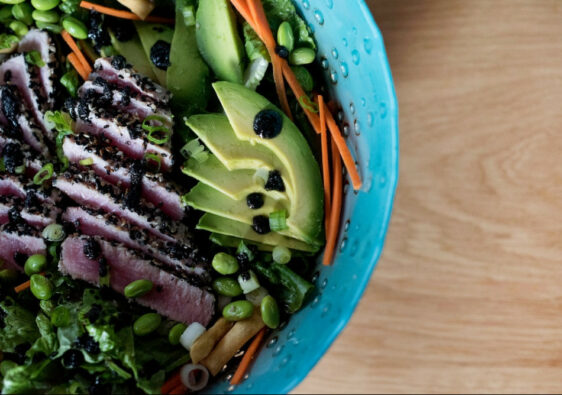
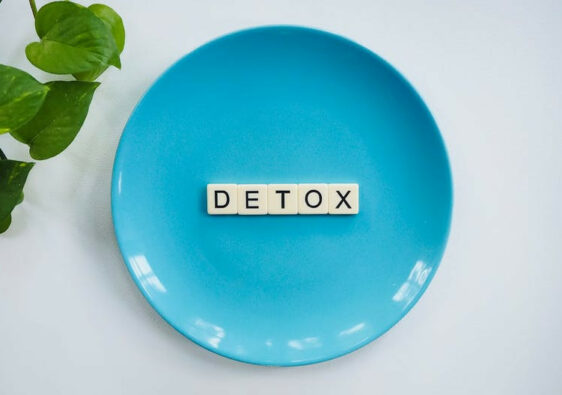
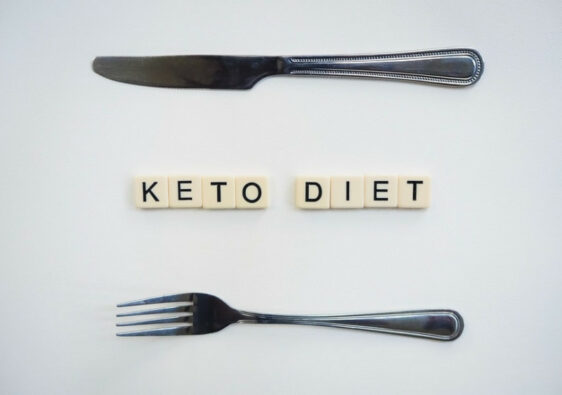
readyforketo is definitely the best site out there, to help people like me lose weight in a health way, for it helped me to do the keto diet in a more effective way, hope it helps some others!
The recommendations in this article are very good for those of us who are looking for a practical solution to lose weight, thank you for sharing these strategies with all of us. It is hard to get accurate information like this. Since other sites I have visited in the past do not offer useful information.
Thank you so much Anna for this great and amazing article. I have a friend on Keto Diet but drinks plenty of fruit juice because in Germany the pipe-borne water in some city is not drinkable for that reason, my but I just realised from your puplication that it can affect her liver. I have to get this across to her. Besides knowing the great benefit of lime and lemon, is it advisable to eat a proportion raw?
Hey there,
You can definitely can consume lime and lemon raw. It is only important that you do not consume too many that is more than your daily carb intake if your are following a keto diet.
Thanks for reading!
Anna
Thank you so much for your amazing article. It actually helps me a lot. I also try and do the keto diet plan with fruit because I love to eat fruits. But I could not apprehend a way to get started out due to the fact I had no idea about keto diet with fruit. But after studying your article I learned about the keto diet plan with fruit. Now I can start my keto diet with fruit. I continually attempt to observe your diet tips. Thanks, you simply wrote a totally helpful article for us. You describe it very well. Looking forward to more beautiful articles related to this in the future. I will share the article with my friends. Thanks
Hello there, thanks for sharing this awesome article I know it would be of great help to the public…….The keto diet can help increase your chances of weight loss. But if you don’t eat the right kinds of fruit, and in the right amount, you may kick yourself out of ketosis and stall your weight-loss efforts
As we all know Fruit is known to be high in carbs, so you might think nature’s candy is off-limits on the trendy high-fat, low-carb ketogenic diet and with the right picks, you can enjoy fruit on a keto diet. You just need to school yourself on which fruits are a good fit… so I urge every one on a keto diet to make sure they eat the write fruit and also the right amount.
Regards,
David.
thank you very much for sharing this article about “ keto diet ” with us. I was thinking about a keto diet to help me lose excess weight & that’s why this article more important for me. I have learned a lot more about Keto diet by this article, your article describe A-Z about keto diet. Thankful to you for this informative article.
Thanks Again…
As I know that certain fruits can easily be eaten in moderation as part of a healthy ketogenic diet. The avocado is a fruit that fits perfectly into a keto diet thanks to its high fat content and is one of the most important ketogenic foods. coconuts are an excellent choice for our keto meal planning. Raspberries provide many antioxidants. Thanks for sharing such useful info.
Thanks for reading!
Hi There,
What a great website I wasn’t sure about this type of diet looks yummy. I learned about the ketogenic diet which is cool and the vast amount of fruits available to us this day and age and with you information there are some really tasty dishes to trial. I think your website is clear and interesting.
Steve